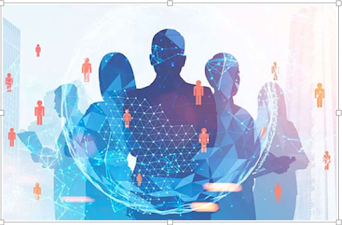HR's Role in 21st century
The 21st century's approach to human
resource management recognizes the importance of employees and the part they
play in giving businesses a competitive edge (Goldsmith, 2003). Organizations
must enhance their operational strategies in order to meet the higher and more
expensive needs of the modern workforce and maintain their personnel for an
extended period of time.
Major Human Resources Trends for the 21st Century
Societal Changes:
The COVID-19 epidemic, according to global professional services company Deloitte, has altered the development of employee-employer interactions, possibly forever. Although it is impossible to predict where future trends in human resources will go, Deloitte offers the following possibilities:
Employers respond to employee needs and competitive activity through their job.
Talent wars: A talent shortage causes workers to battle for jobs.
Employees seek to find meaning and purpose outside of their occupations rather than in their professional roles because work is simply work.
Employees in the workplace are unable to handle the stress brought on by extended working hours, pressure to meet goals, and intense rivalry in the twenty-first century. As a result, conflicts arise that must be resolved.
Helping employees advance from entry-level to senior staff members
Providing them with training opportunities
Assisting them with their professional growth during their employment are some of the newer tasks of HR professionals
- Head of Remote
- Remote Culture Manager
- Learning Development manager
- Recruiter
- Chief Wellness Officer
- Employee Engagement Manager
- Diversity, Equity, Inclusion, and Belonging (DEIB) Manager
IvyPanda,(2022),21st
Century Human Resource Management: Its Role and changes[Online]available at https://ivypanda.com/essays/human-resource-management-changes-in-the-21st-century/#:~:text=Human%20resource%20management%20in%20the%2021st%20Century%20involves%20employees%20working,%2C%20abilities%2C%20and%20job%20experience
accessed on 30th November 2022
Kossek, E. E. and Block, R.N. (2000),Managing Human Resources in the 21st century[Online] available at https://www.researchgate.net/publication/260287346_Book_Review_Managing_Human_Resources_in_the_21st_Century--From_Core_Concepts_to_Strategic_Choice_by_Ellen_Earst_Kossek_and_Richard_N_Block_South_Western_College_Publishing_Cincinnati_2000 Accessed on on 30thNovember 2022









HR has become more challenging in 21st century both locally & internationally. I feel it will be more complicated in the future.
ReplyDeleteSanjana, it is undeniable that the future will be more challenging than we anticipate given the current condition.
DeleteAruna what are the main challanes
ReplyDeleteIn HR's Role in 21st century
- November 30, 2022?
As I indicated above, the primary problems for human resources in the twenty-first century are promoting organizational culture, career development and growth, conflict management and resolution, and business ethics and values
DeleteThis comment has been removed by the author.
ReplyDeleteYes for sure time time time depending on the situation for sure HR has change their role. As a example like in COVID 19 HR has to play a different role.
ReplyDeleteFirms would be prudent to embrace the contemporary tools and technology that help them to construct even better companies rather than being afraid of what the changes entail for the HR department or the people working in it.
Employees must collaborate in teams and participate in decision-making in order to effectively manage human resources in the twenty-first century. This method of HRM places more emphasis on enhancing employees' worth by highlighting their competencies, skills, abilities, and work experience. Well written article.
ReplyDeleteYes exactly Nadun,Thanks for the comment
DeleteThis a good article. It would be better if you can identify the constraints and recommend solutions as well.
ReplyDeleteKeep all the best talent, Bring in excellent talent. overcoming cultural barriers. Promote advanced learning. can recognize some of the difficulties that HR encounter,
DeleteSolutions include change management, compensation and benefits, job and culture fitment, and continuous learning and succession planning. By HR
Well explained article about HR trend in 21st century and there are some challenges as well.
ReplyDeleteThanks for commenting udara
Delete